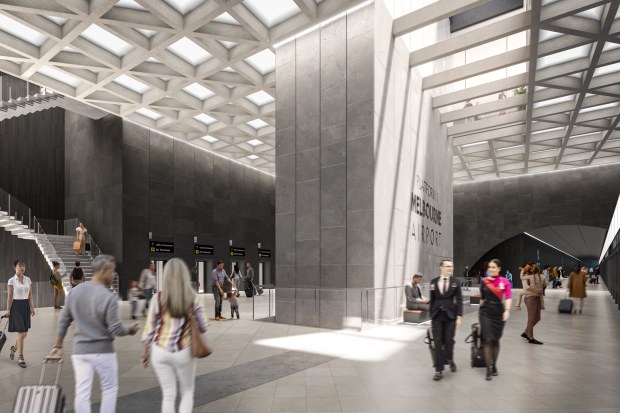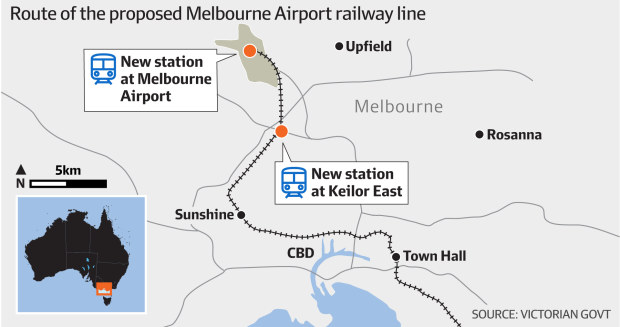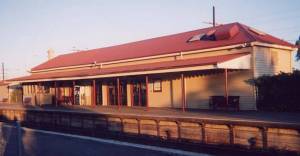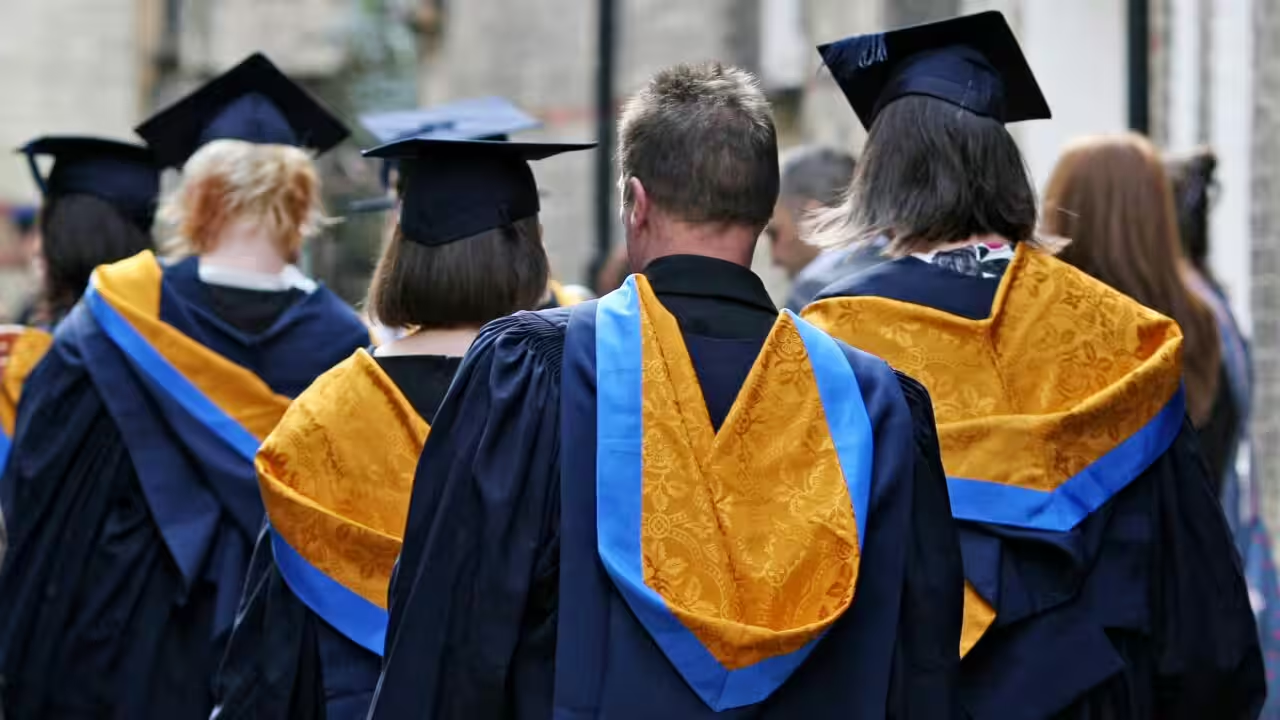The Victorian government says Melbourne Airport is holding a proposed rail link from the city “hostage”, with the state and the transport hub owned by some of the country’s biggest infrastructure investors now in external mediation.
The airport, which is owned by private investors including property group Dexus, IFM Investors and the Future Fund, has been locked in a stalemate with the state over the location of a train station on land leased to the airport by the Commonwealth.
Victorian Treasurer Tim Pallas has accused the airport of wanting a “gold-plated” underground station and compensation for disruption during construction. He prefers an above ground, believing an underground station would create more disruption, take almost two years longer to build and cost more than $1 billion extra.

“Melbourne Airport continues to hold the airport rail project hostage, delaying the project’s completion date by up to four years and wasting billions of dollars,” a government spokesman told The Australian Financial Review.
“The airport has deliberately frustrated the process every step of the way by trying to extort hundreds of millions of dollars in compensation from the state – refusing to contribute a single cent towards the project.
“We look forward to the Commonwealth progressing matters with their appointed mediator to help resolve the unreasonable demands of its tenant, Melbourne Airport.”
But the airport, which supports a rail link, says it wants to “future-proof” the airport station so that it is easy for travellers to get to in bad weather and so that land above ground can be used to expand terminals in the future.
“In April, Melbourne Airport offered to explore potential funding opportunities to help deliver a future-proof airport station,” an airport spokesman said. “This offer was reiterated to government following May’s state budget. To date, the state has refused our requests for a meeting.”
‘Four years delayed’
The airport was part of a consortium, Air Rail Melbourne, that in 2019 offered up to $7 billion to build an underground airport station and express rail link to the CBD.
The proposal was rejected by the state. But the airport believes it could put together a competitive funding proposal if a feasibility study on an underground station was done.
Both Victoria and the Commonwealth have each committed $5 billion of funding to the project, which was projected to cost up to $13 billion in its 2022 business case.
In early April, the federal government appointed Neil Scales, a former director-general of Queensland’s transport department, to try and resolve the stoush.
Infrastructure Minister Catherine King told a Committee for the Economic Development of Australia conference in April that “the challenge we’ve obviously got is making the decision about where the station box goes and that dispute we have with the airport, trying to get that settled”.

Mr Scales is understood to have held initial meetings with the airport.
A spokeswoman for Ms King declined to comment.
In March 2021, the Victorian government said it expected to start construction on the rail link in 2022 with a forecast completion date of 2029. Contracts for early works on the project, such as relocating transmission towers and telecommunications, water and electricity services are continuing, were awarded and started.
But by early last year Premier Jacinta Allan was describing talks with Melbourne Airport as “challenging” and Mr Pallas confirmed in his budget speech in earlier this month that the rail project was “at least four years delayed.”
Victoria’s opposition has used the dispute to attack Labor, claiming the government has wasted $67 million demobilising contractors – who are due to complete early works this year – until the dispute with the airport is resolved.
Liberal public transport spokesman Matthew Guy said it was astounding that planning and design issues remained unresolved after the state government launched the rail link project six years ago. “At this rate, teleportation will have been invented before Melbourne Airport rail is commenced,” Mr Guy said.
Unions claim that the airport is putting profits before people.
“While Melbourne Airport gouged $106.2 million in car park profits in the last financial year, airport workers on meagre wages and conditions are struggling to commute to work on top of cost-of-living expenses,” said the Victorian state secretary of the Transport Workers’ Union, Mem Suleyman, adding the airport needed skilled workers.
“This has gone on long enough, we need to see an airport rail link installed without further delay, and urgent measures taken to introduce additional bus services to provide immediate assistance to workers doing it tough.”
Australian states have taken different approaches to building airport stations. Perth’s new airport rail link was paid for by the state government and has an underground airport station.
But it is linked to the airport’s terminals by an above-ground entrance and a “skybridge” and travellers pay regular train fares of just $5.10 to get from the airport to Perth’s CBD.
Sydney Airport has underground stations at its domestic and international terminals that were privately funded and travellers have to pay an access fee of $17 for a single trip.
Brisbane Airport’s Airtrain rail link, which is above ground and was privately funded, costs $21.90 one-way to travel from the airport to Brisbane’s CBD.
The Queensland government is in talks with Airtrain, owned by a UK pension fund, Universities Superannuation Scheme, to end its contract early so it can reduce fares.
Melbourne Airport’s rail link’s business case assumed airport travellers would pay a “premium” fare to use it but did not specify the cost of fares.
AFR

